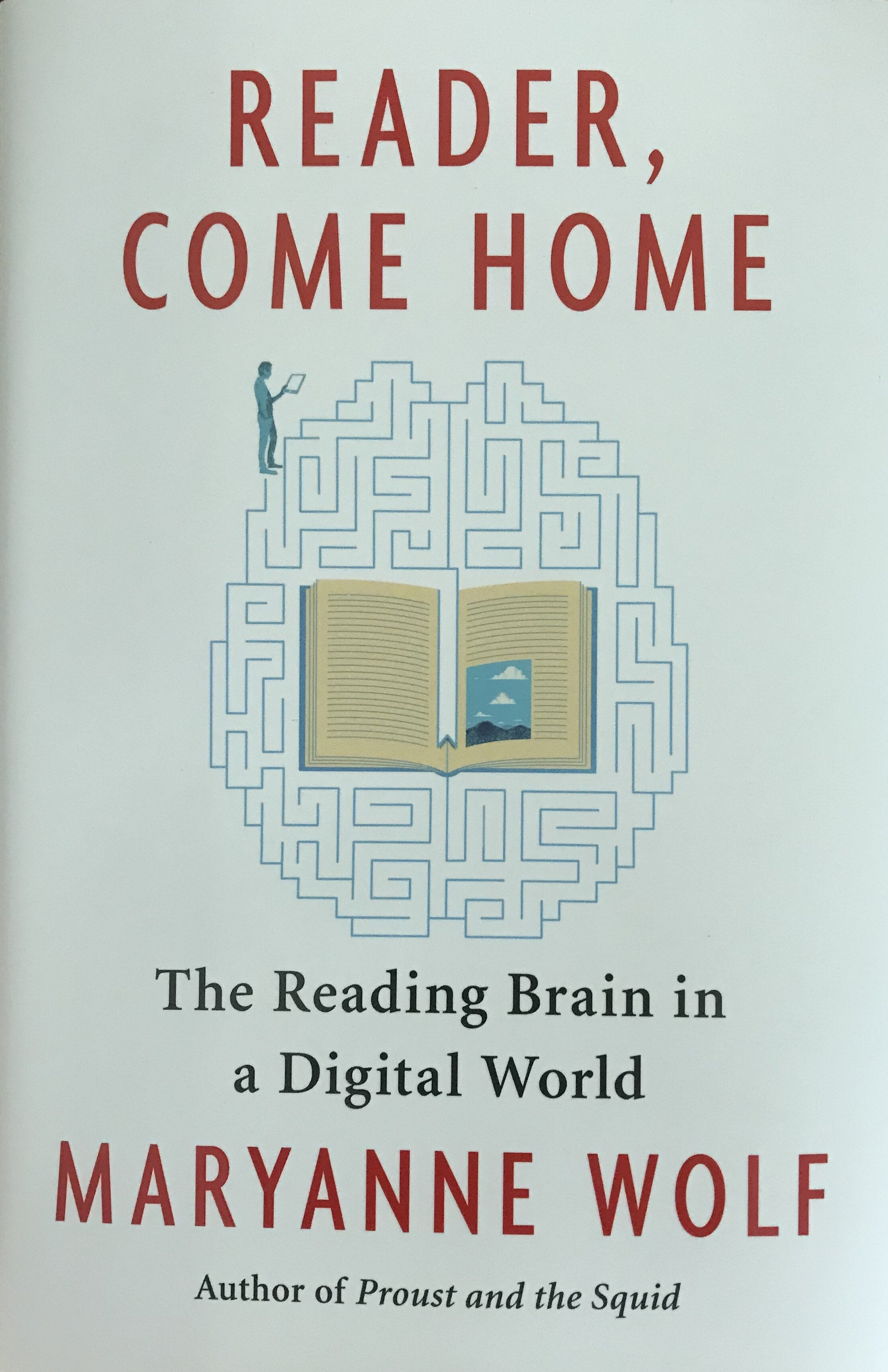Epistolary Day: In Praise of the Quiet Eye
 Dear Maryanne Wolf,I was always an easily distractible person. I still am. I can't write if there's music playing or if anyone is talking (other than the imaginary people in my head, that is). Sometimes, when I'm working on a draft, I have to pull the blinds down so I don't end up spending hours staring at falling leaves or dragonflies instead.As a child, my report cards frequently read, "Does not pay attention." It was true. I was a hummingbird of a kid, whirling round in dizzy gladness, drawn from one bright object to the next.But from the time I began to read, one thing always stilled me. A book.Give me a book and I would instantly get lost in its pages. I would become somebody else. I would go somewhere else, and somewhen as well. I would be transformed. Back in the 1960's I didn't have the bright objects that children have today. No screens with easy click-throughs to tempt my easily sidetracked brain away. Books allowed me to develop the "quiet eye," the path to theologian John S. Dunne's "essence of things." It would be years before I'd realize what a gift that was.And because I didn't have that many books, I reread the ones I had, over and over again. You quoted Anne Fadiman, Maryanne, on reading compared to rereading:
Dear Maryanne Wolf,I was always an easily distractible person. I still am. I can't write if there's music playing or if anyone is talking (other than the imaginary people in my head, that is). Sometimes, when I'm working on a draft, I have to pull the blinds down so I don't end up spending hours staring at falling leaves or dragonflies instead.As a child, my report cards frequently read, "Does not pay attention." It was true. I was a hummingbird of a kid, whirling round in dizzy gladness, drawn from one bright object to the next.But from the time I began to read, one thing always stilled me. A book.Give me a book and I would instantly get lost in its pages. I would become somebody else. I would go somewhere else, and somewhen as well. I would be transformed. Back in the 1960's I didn't have the bright objects that children have today. No screens with easy click-throughs to tempt my easily sidetracked brain away. Books allowed me to develop the "quiet eye," the path to theologian John S. Dunne's "essence of things." It would be years before I'd realize what a gift that was.And because I didn't have that many books, I reread the ones I had, over and over again. You quoted Anne Fadiman, Maryanne, on reading compared to rereading:
... the former had more velocity; the latter had more depth.
It made me see how I'm skimming so much more now, reading for information and not for immersion. The screen will do this to a person. It can fool you into thinking you know a lot. In reality, that kind of reading can result in knowing about many things, while knowing very little about any of them.You cited Lorca's poem, "My Ancient Heart of a Child." And I wondered, if I, the distractible ex-child, who see myself now as a literate adult, am worrying about losing my own ability to read deeply, what can I possibly do, as a writer for children, to stay true to the magic of the perfect word? How pass along the lineage I have inherited of generations upon generations of books, all speaking to one another and so, in the end, speaking to me? It seems to me that is the heart of a reading life, something that now feels as endangered as icebergs.